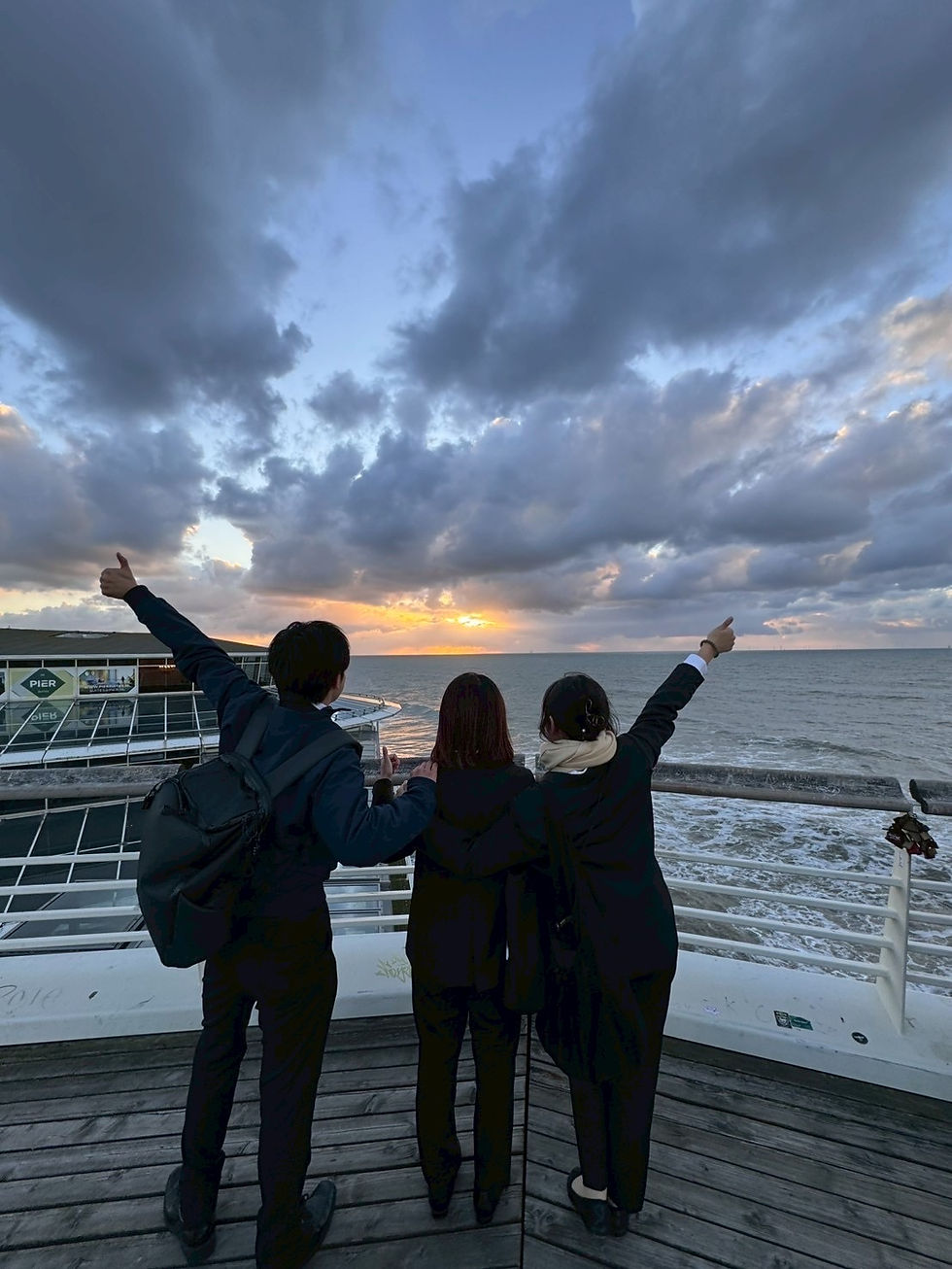My Challenges and Progress in Ethiopia
- Administrator
- 2024年4月15日
- 読了時間: 3分
更新日:2024年6月13日
B3 Tokiwa Takahashi
From the 11th to the 15th of March 2024, the members of the Fujii Seminar stayed in Addis Ababa, the capital of Ethiopia, as a field trip of the Fujii Seminar. We visited the African Union, European Union, United Nations, NATO, the Ambassador residence of the Misson of Japan to the African Union, AMANI AFRICA, The Institute for Peace and Security Studies, the Ethnological Museum, and the Red Terror Martyrs’ Memorial Museum. In this article, I would like to share my memories, such as what I felt and learned from this trip.
On the first day, we arrived in Ethiopia and went sightseeing in places such as ENTOTO Park and the Ethnological Museum. I felt more nervous than excited when I arrived in Ethiopia because this was my first trip to Africa. Seeing the city inside the taxi was refreshing and exciting, but the carsickness was a hurdle. We took many pictures, I especially like the photo taken at the photo spot “Ethiopia” attached. At the Ethnological Museum, the guide explained Ethiopian history and culture. It was a lovely time to look around nature and the museum.

On the second day, we visited several international and regional organizations. It was challenging to come up with what I would like to ask people from such backgrounds. However, by researching their backgrounds and mandates, I enjoyed getting a better understanding of what the experts were talking about in conversation with us. In specific, I struggled to ask questions and to use appropriate vocabulary to get precise information that I would like to know from them. During the fieldwork in Ethiopia, I was frustrated because I felt that my English skills, especially speaking and listening, were lacking and I needed to get an enough information about the institutions before we visited. However, amidst that the instructions given to us by Professor Yamane who kindly joined our field trip and specializes in international relations at Hiroshima University, were very enlightening, and I taught students the principal fieldwork methods. I learned that we need to create a flow of topic when I ask questions to the person so that we can conduct an interview with a good manner. Thanks to his advice, we were able to prepare and ask questions more concretely. This experience of overcoming language barriers was a significant achievement for me, and it inspired me to continue improving my communication skills.

We went to the Red Terror Martyrs’ Memorial Museum on the final day. In the museum, not only the photographs and clothing of the victims at the time but also their real skeletons and replicas of torture were exhibited. In particular, real skeletons displayed in glass cases were unexpected. The display of real skeletons represented the brutality of the massacre. I felt that visiting the museum and seeing the display of real skeletons gave me a more serious impression of the massacre than just learning from the book. Also, it taught me again the importance of international law and peace-building processes.
In conclusion, I sincerely thank Professor Fujii for giving us this wonderful opportunity. This trip had many challenges, but I felt a sense of worth and achievement. This trip was a valuable opportunity to improve my ability to understand Africa. I would like to keep in mind the reflections, and insights I have gained from this experience for my studies in the future. The guidance and support of Professor Fujii were instrumental in making this trip a success, and I am truly grateful for his mentorship.




コメント